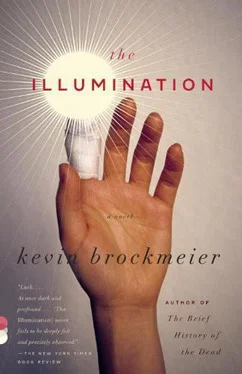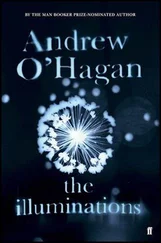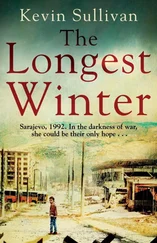The train platform was only a few blocks away. Morse guided the smaller one through the turnstile and onto the northbound express. On the other side of the river, in the gas station by the used car lot, he borrowed forty dollars to buy a carton of cigarettes and packed them into the smaller one’s jacket. The smaller one’s stomach shone and guttered through his shirt, its lancinations casting their light over Morse’s hands. As he closed his zipper, he felt like a doctor stitching an incision. The two of them shuffled past the pumps and the repair bays, the pawn shop and the nail salon, the warehouse with the giant American flag painted on its side. Then it was through the chain-link fence, under the freeway, up the bluff, and into the trees. The last thing the smaller one said as Morse banked him away in an empty tent was “What we did to you that day—I had no clue, man, you gotta believe me.”
It was nine days later, and Morse had stopped hearing footfalls in the alley at night, stopped feeling the wind on his neck, stopped, in short, expecting trouble to find him, when it did. He was sitting on his milk crate by New Fun Ree, reading one of the diary’s late pages by the light of the sun, the pigeons strutting past his blanket like mindless little kings.
I love feeling your hands reach behind me to adjust my collar when I’m wearing a shirt and tie. I love the way, when we haven’t seen each other for a while, you’ll run to me with one of your patented spring-loaded hugs, your arms outstretched and then BAM! I love the hard time you have with fractions. I love the soft blue veins on your wrist. I love the beautiful pink cushions of your lips. I love hearing you sing old R&B songs when you don’t know I’m listening, love your bright little meadowlark of a voice. I love it when we finish having sex, and we don’t have anything to do, and I can just lie there twitching inside you for a while. I love the way you’ll put a few spoonfuls of palak paneer on your plate, eat it, then put another few spoonfuls on your plate, eat it, and so on. I would love to have a baby with you .
He had just turned the page when the book was plucked from his hand, taken almost delicately, as if someone were twisting a blueberry from a vine. He looked up, and there they were, the one with the shaved head and the one with the paring knife and the big red beefy one with the metal hoops in his ear. He recognized them right away, though he had not seen them since the day they put him in the hospital.
The big one, who had loosened his necktie and rolled up his shirtsleeves, fanned through the pages of the diary. “What’s this we got here?”
Morse tried to ask him a question. “Doing some? Some some?”
“I’m gonna do me some reading.”
“Doing some reading?”
“That’s just what I said now, isn’t it?”
He handed the book to the one whose missing tooth, a bicuspid, gave a jack-o’-lantern quality to his face, and the one with the missing tooth cocked his wrist and flung it into the street. The cover jackknifed over on itself with a ruinous crack before a truck sent it skidding into the gutter. Several of the pages fluttered loose. Morse watched them follow one another across the asphalt, spilling words the way a car wreck spills oil.
“Now, I understand you’ve been seen with a friend of ours. Man by the name of Lee Hartz. What we want to know is where he’s hiding out these days.”
“Hiding out?”
“I think you take my meaning.”
Morse shook his head.
And then it was, “Looks like our man here doesn’t know anything,” and, “That’s a shame really. A real shame,” and they seized him by the arms and marched him around the corner. The people on the sidewalk stood hard to one side or else shied away into the entries of shops and restaurants. At the dark end of the alley, beneath the fire escape, the one with the smile said, “All right. Lee Hartz. Name ring any bells for you yet?” and the one with the tire iron said, “I don’t think he understands the question,” and the one whose neck muscles stood out like wood vines said, “I guess we’ll have to find some other way to ask him.”
They came at him with their fists and their boots and their knives. The light left his body in a flood of silver. Perhaps this time it really was his soul.
He sank against a cellar window, shielding his face with his hands until it was over. He was not sure how long the three of them took, only that a moment came when someone belted him on the ear and one last kick made its mark on his hip. Then there was just the quiet of their breathing, their lungs laboring as if they had finished a race. The one with the necktie said, “Rest up now, buddy,” or maybe it was the one with the shaved head. He couldn’t tell their voices apart anymore. “We’ll be seeing you soon.”
Morse listened as the traffic absorbed the sound of their footsteps. Slowly, slowly, he uncovered his eyes. The alley was so narrow he had become invisible to most of the people on the street. He watched them passing in the distance as if through a sheet of water, the strange reeds of their bodies blurring this way and then the other. The one sliding a letter into the mailbox, his frayed leather satchel looped over his shoulder, was named Masaki. At the lab he and his team were working with silica fiber and an attosecond laser on an experiment in quantum optics. Their thesis—and the Hval equations had already borne this out—was that there was no such thing as photonic degradation, that light was effectively immortal, or at least as immortal as the universe itself. If he was right, their research would cement the principle as fact. Masaki imagined himself standing before a hushed auditorium. “Distinguished colleagues,” he would say, “members of the press,” and he would gesture toward the spotlight illuminating him on the dais. “This light you see, and the light of the candles on your tables”—it would be an awards banquet, he decided—“and even we ourselves, all of us here, our own images, are, in a word, imperishable. This is what my team’s experiments have demonstrated.” They were so close, so close. He could hardly wait to publish their results. A quarter was resting by the toe of his shoe, and he stooped over, collected it into his palm, and stood back up. A wave of passengers poured from the subway tunnel. Another wave surged across the asphalt. And all of them, the whole great press of men and women, children and teenagers, jostling and coughing and checking their text messages—they believed their lives were like falling silver coins, flashing for merely an instant before they returned to the darkness. They were wrong, but it was what they believed. Masaki’s heart was moved by their weakness and their splendor. He heard a commotion and glanced down the alley. Take that gentleman lying against the brick wall in a heap of wet clothing, crying out so gravely and unintelligibly. Yes, his moans were awful, and yes, his wounds burned out of him like a fire, but his pain would cease, and his body would heal, and the light would last forever.
I owe thanks to my editor, Edward Kastenmeier, and to everyone at Pantheon and Knopf who has supported this book, including Tim O’Connell, Rita Madrigal, and Josefine Kals; to Alex Bowler and everyone at Jonathan Cape; to my agent, Jennifer Carlson, and her colleagues at Dunow, Carlson & Lerner; and to Heather Swan, for her early encouragement and her help with the title.
Kevin Brockmeier is the author of The View from the Seventh Layer , The Brief History of the Dead , The Truth About Celia , Things That Fall from the Sky , and two children’s novels. He has taught at the Iowa Writers’ Workshop. His stories have appeared in many publications, including The New Yorker , McSweeney’s , and The Oxford American , and have been anthologized in The Best American Short Stories , O. Henry Prize Stories , and Granta Best of Young American Novelists . He lives in Little Rock, Arkansas.
Читать дальше












